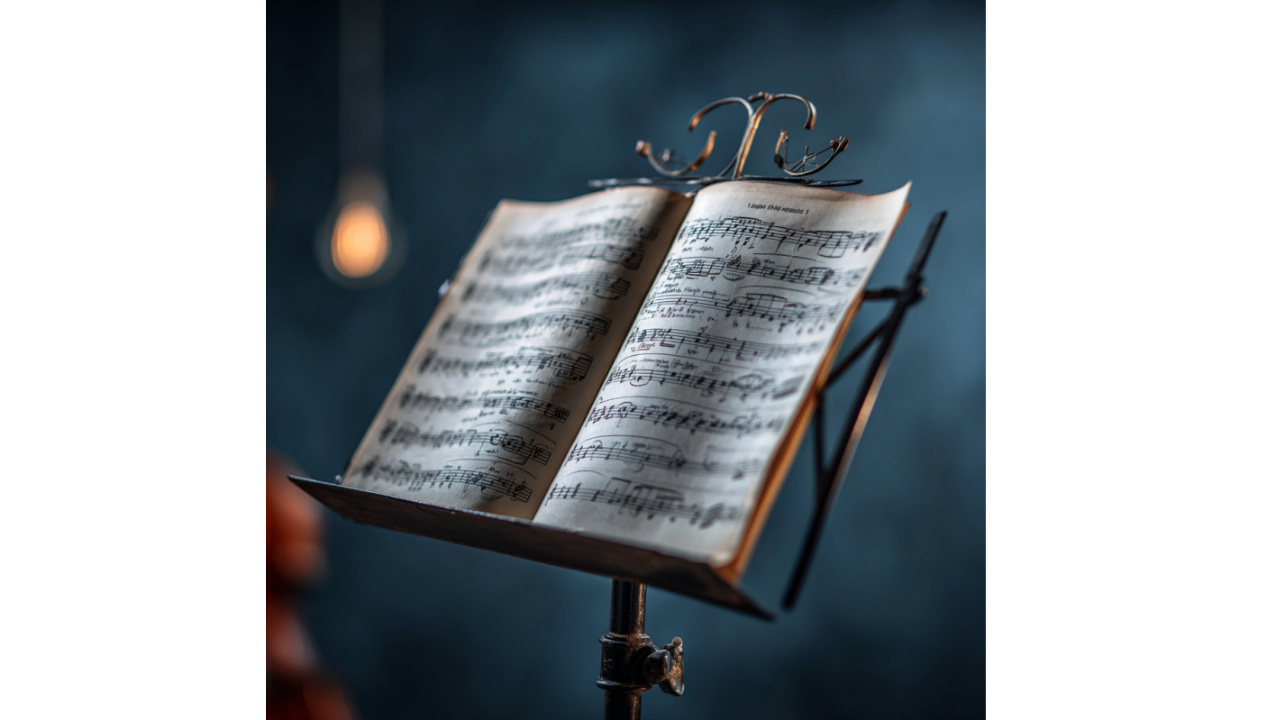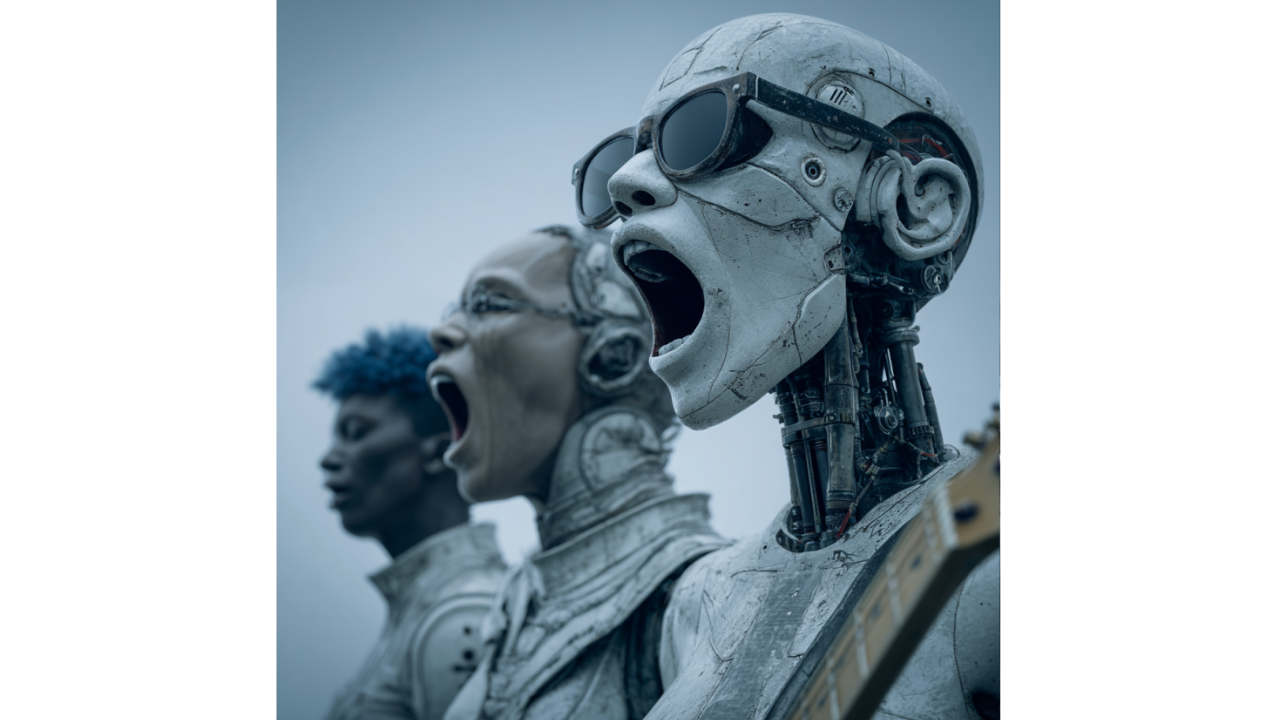Musicians, Welcome to the Post-Streaming Economy
Remember when musicians made money from music? Quaint concept, right? Like believing in unicorns or thinking Facebook cares about your privacy. The...
-2.png)
We're living through music's iPhone moment. Just as smartphones didn't just improve phones but created entirely new industries, AI isn't simply making music better—it's rewriting the fundamental question of what music even is. Timbaland's controversial launch of TaTa, his AI-generated "artist," has sparked the kind of cultural firestorm that usually accompanies genuine paradigm shifts. But unlike most tech debates, this one cuts straight to the heart of human expression itself.
The battle lines are drawn between two equally compelling visions of our musical future. One sees AI as the great democratizer, unleashing creativity from the constraints of skill and resources. The other views it as the ultimate artistic apocalypse, threatening to replace the messy, beautiful humanity that makes music matter. Both sides have the receipts—and both are probably right.
The Optimist's Symphony: Why AI Will Save Music
The numbers don't lie: AI is already winning. The AI music market is expected to reach $6.2 billion by 2025, growing to $38.7 billion by 2033 with an annual growth rate of 25.8%. AI-generated music is projected to boost industry revenue by 17.2% this year alone. For an industry that's been through vinyl's death, CD's collapse, and streaming's pennies-per-play nightmare, these aren't just statistics—they're a lifeline.
Here's what the AI evangelists get right: creativity has always been gatekept by technical skill and expensive equipment. You want to make a song? Better learn an instrument, understand music theory, and shell out thousands for studio time. AI demolishes these barriers faster than a guitar amp feedback loop. Around 60% of musicians are already using AI tools for mastering, composing, and creating artwork. AI can generate a basic melody in less than 2 seconds, making it 20 times faster than humans.
The democratization argument isn't just theory—it's happening in bedrooms across the world. Independent artists who couldn't afford a producer can now compete with major label releases. AI tools like Suno are essentially putting a full recording studio in everyone's pocket, and platforms like Amper Music are securing millions in funding to expand these capabilities.
Consider the creative possibilities. Holly Herndon, one of the most thoughtful artists working with AI, created Holly+, a vocal deepfake of her own voice that allows anyone to transform their voice into hers. Rather than fearing AI, she's using it to explore new forms of artistic collaboration and community creation. The Beatles' "Now And Then," which used AI to restore John Lennon's voice, won a Grammy in 2025—the first AI-assisted song to receive such recognition.
The AI optimists point to music history: every technological breakthrough from the electric guitar to sampling to Auto-Tune was initially met with horror from purists. Yet each innovation expanded music's vocabulary rather than diminishing it. Electronic music, hip-hop, and countless other genres emerged from "artificial" tools that traditional musicians initially dismissed.
The business case is equally compelling. 74% of internet users have used AI to discover new music, and 82% of listeners can't distinguish between human and AI-generated tracks. Over 50% of the top 20 global hits are influenced by AI recommendations. The technology isn't just creating music—it's revolutionizing how we find and consume it.
For marketing professionals, this represents unprecedented opportunity. AI enables real-time, adaptive campaigns that respond to audience mood and behavior. Brands can generate custom soundtracks for individual consumers at scale. The personalization possibilities alone justify the investment.
But the critics aren't wrong either. Behind every optimistic statistic lurks a darker reality: human artists are being systematically replaced by algorithms trained on their work without consent or compensation. The Recording Industry Association of America is organizing lawsuits against platforms like Suno and Udio for "mass infringement of copyrighted sound recordings." Goldmedia research predicts musicians could lose 27% of their revenue by 2028 as AI-generated content grows.
The moral argument is devastating. Suno and similar platforms train their models on millions of existing songs without permission, then allow users to generate "new" music that's essentially sophisticated plagiarism. When Timbaland fed K Fresh Music's beat into Suno and created a "new" version without permission, he perfectly illustrated the fundamental theft at AI music's core.
The cultural implications are even worse. As Living Colour guitarist Vernon Reid observed about AI-generated Delta blues, separating music from its "historical human drama" desecrates it. Music isn't just organized sound—it's the expression of lived experience, struggle, and authentic emotion. AI can simulate the patterns of the blues, but it can't replicate the pain that created them.
The homogenization threat is real. If AI systems optimize for streaming metrics and algorithmic engagement, we risk a future where all music sounds like the mathematical average of what performed well in the past. The weird, challenging, and genuinely innovative work that pushes culture forward may be systematically filtered out in favor of AI-optimized content designed to trigger dopamine rather than inspire thought.
The economic devastation is already beginning. In 2022, 80% of artists on Spotify had fewer than 50 monthly listeners. Imagine how those numbers change when people can generate hundreds of songs in minutes. AI isn't just competing with human artists—it's flooding the market with infinite content that makes human work even harder to discover.
The deepfake implications are particularly sinister. We've already seen AI used to create unauthorized songs featuring Drake and The Weeknd's voices. As the technology improves, distinguishing between authentic and synthetic performances becomes impossible, opening the door to fraud, identity theft, and the commodification of human voices without consent.
The creative process itself is under threat. Music-making has always been about the journey as much as the destination—the struggle to translate emotion into sound, the collaboration between musicians, the happy accidents that lead to breakthrough moments. AI optimization eliminates this messy human process in favor of algorithmic efficiency.
The truth is both visions are simultaneously correct and incomplete. AI will democratize music creation while also threatening traditional artists' livelihoods. It will enable new forms of creativity while potentially homogenizing musical culture. It will make music production more efficient while potentially robbing it of authentic human struggle.
The key insight isn't choosing sides—it's designing systems that harness AI's power while protecting human creativity. 95% of music creators want AI developers to disclose when copyrighted works are used in training, and 90% want developers to ask permission first. This isn't anti-technology sentiment—it's pro-artist pragmatism.
Smart music companies are already finding the middle path. Instead of replacing human creativity, they're using AI to augment it—helping with mixing, mastering, and production tasks while leaving the core creative decisions to humans. The most successful AI music tools aren't trying to replace artists but to make them more powerful.
For marketing professionals, the lesson is clear: AI is inevitable, but how we implement it matters. The brands that figure out how to use AI to enhance rather than replace human creativity will capture both the efficiency benefits and the cultural credibility that comes from supporting artists.
The future won't be human versus machine—it will be humans using machines to become more human. But only if we're smart enough to design it that way. The sound and the fury of this debate ultimately comes down to one question: Do we want AI to amplify the best of human creativity, or do we want to let it replace human creativity entirely?
The choice is still ours. For now.
Ready to navigate the AI music revolution without losing your brand's soul? Winsome Marketing's growth experts help you implement AI strategies that amplify human creativity rather than replace it—because the best marketing sounds authentically human, even when it's algorithmically optimized.
-3.png)
Remember when musicians made money from music? Quaint concept, right? Like believing in unicorns or thinking Facebook cares about your privacy. The...

We've reached the point in AI development where leaked memos carry more narrative weight than actual product announcements. A document currently...

ElevenLabs just dropped Eleven Music, and unlike the legal minefield surrounding other AI music generators, this one comes with something...